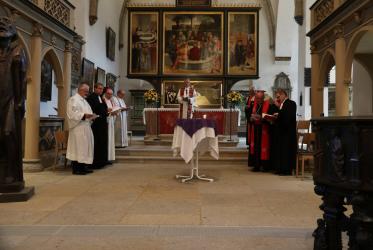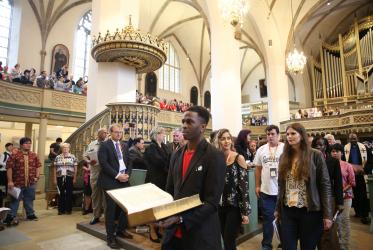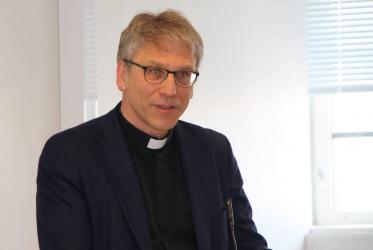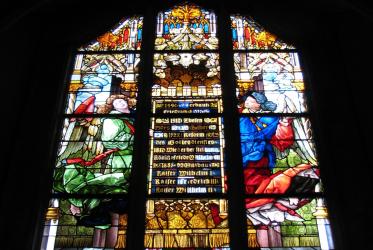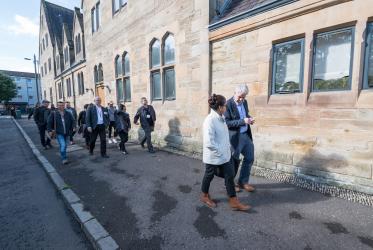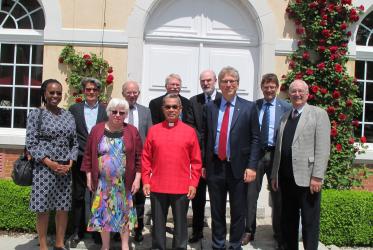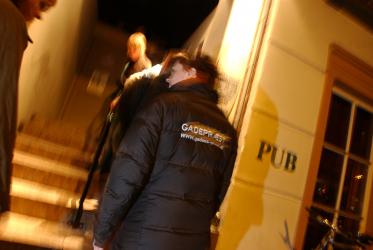Displaying 61 - 80 of 103
31 August 2017
Ecumenical Patriarch visits WCC
24 April 2017
Unity prayers to recall Reformation, celebrate reconciliation
13 January 2017
Hielke Wolters: Apostle of mission strategies
01 August 2016
Orthodox synod “a spiritual gift” to other churches
24 June 2016
Panel discussion fields ideas on European identity
26 April 2016
Mission in secularized contexts focus of seminar
18 February 2016
